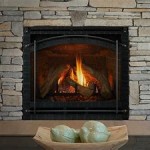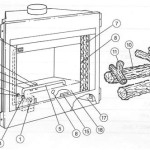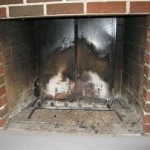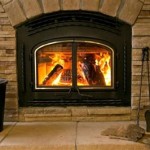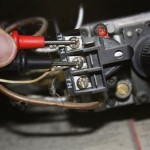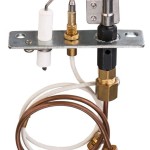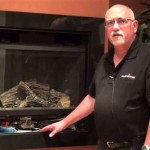Understanding Thermopile Gas Fireplace Systems
Gas fireplaces offer a convenient and aesthetically pleasing alternative to traditional wood-burning fireplaces. They provide instant heat, ease of use, and a clean fuel source. Within the realm of gas fireplaces, different ignition and control systems exist, each with its own set of characteristics. One prominent type is the thermopile system. This article provides a comprehensive overview of thermopile gas fireplace systems, explaining their operational principles, components, advantages, disadvantages, maintenance, and troubleshooting.
A thermopile is a thermoelectric device that converts thermal energy directly into electrical energy. It is essentially a series of thermocouples connected together. A thermocouple, in its basic form, is formed by joining two dissimilar metals. When one junction of the thermocouple is heated and the other remains at a cooler temperature, a voltage difference is generated. This voltage, though small for a single thermocouple, is amplified in a thermopile by connecting multiple thermocouples in series. The resulting voltage is then sufficient to power the controls of a gas fireplace.
Key Component: The Thermopile Itself
The heart of the thermopile gas fireplace system is, unsurprisingly, the thermopile. It is a bundle of thermocouples housed within a protective metal sheath. The hot junction of the thermopile is positioned within the pilot flame of the fireplace. This intense heat generates the necessary voltage. The cold junction, typically located outside the direct heat of the pilot flame, provides the reference temperature. The temperature difference between the hot and cold junctions drives the voltage generation. The thermopile is a crucial component, and its proper functioning is paramount for the fireplace to operate reliably. Its lifespan is affected by factors such as exposure to high temperatures and corrosive byproducts of combustion. A degraded or failed thermopile is a common cause of gas fireplace malfunction.
The voltage output of a new and properly functioning thermopile is typically in the range of 600-750 millivolts (mV) when the pilot flame is fully engaged. This voltage is fed to the gas valve, which controls the flow of gas to the main burner. Over time, the thermopile's output voltage can decrease due to degradation of the thermocouples, corrosion, or other factors. When the voltage drops below a certain threshold (usually around 200-300 mV), the gas valve will shut off, extinguishing the main burner as a safety precaution. This is a common symptom of a failing thermopile.
It's important to note that the thermopile relies on the pilot flame. The pilot flame’s steady and consistent presence is crucial for maintaining the thermopile's temperature differential. If the pilot flame is weak, dirty, or unstable, it will not adequately heat the thermopile, resulting in insufficient voltage output. This can manifest as the main burner failing to ignite or shutting off prematurely. Therefore, proper maintenance of the pilot assembly is essential for the longevity and reliability of the thermopile.
Operational Mechanism and Safety Features
The operational mechanism of a thermopile gas fireplace is a relatively simple yet effective closed-loop system. When the pilot light is initially lit, it heats the hot junction of the thermopile. As the thermopile heats up, it generates a small electrical current. This current energizes the gas valve, specifically a magnetic coil within the valve. The energized coil then pulls open the valve, allowing gas to flow to the main burner. When the user switches on the fireplace, the main burner ignites, providing heat. As long as the pilot light remains lit and the thermopile continues to generate sufficient voltage, the gas valve remains open, and the main burner continues to operate.
Safety is a paramount concern in gas fireplace design, and the thermopile system incorporates several safety features. The primary safety feature is the pilot safety system. This system ensures that the main burner cannot operate unless the pilot light is lit and the thermopile is generating sufficient voltage. If the pilot light is extinguished for any reason, such as a draft or a gas supply interruption, the thermopile will cool down, and its voltage output will drop. This drop in voltage causes the gas valve to close, shutting off the gas supply to both the pilot and the main burner. This prevents the accumulation of unburned gas, mitigating the risk of explosion.
Another important safety feature is the flame rollout switch. This switch monitors the area above the firebox for excessive heat. If the flue is blocked or if there is a problem with the combustion process, heat can build up in the firebox and potentially cause damage or create a fire hazard. The flame rollout switch is designed to detect this overheating and shut off the gas supply to the fireplace, preventing further escalation of the problem. Some models may also include a high-limit switch that monitors the temperature of the firebox itself and shuts off the gas if it reaches a dangerously high level. These safety features work in tandem to provide a safe and reliable heating appliance.
Thermostat compatibility is another crucial aspect of thermopile systems. Because the thermopile generates a small DC voltage, it can readily interface with a variety of thermostats. A simple on/off thermostat can be used to control the main burner, allowing the user to maintain a consistent room temperature. More sophisticated thermostats may offer programmable features, allowing for scheduled heating and energy savings. The direct compatibility with thermostats is a significant advantage, allowing for convenient and automated control of the fireplace.
Advantages, Disadvantages, and Common Problems
Thermopile gas fireplace systems offer several advantages. Their reliance on a self-generating electrical source ensures continued operation even during power outages, if they do not require an electronic ignition to initiate the pilot. The simplicity of the design makes them relatively reliable and easy to maintain. They are also cost-effective to operate, as they do not require a constant supply of electricity. Their inherent safety features, such as the pilot safety system and flame rollout switch, provide a significant level of protection against gas leaks and fire hazards. Furthermore, the compatibility with thermostats allows for convenient temperature control and energy efficiency.
However, thermopile systems also have some disadvantages. The voltage output of the thermopile is relatively low, limiting the complexity of the control system. This typically restricts them to basic on/off operation or simple temperature control through a thermostat. More advanced features, such as remote control or electronic ignition, often require an external power source. Another disadvantage is the inherent degradation of the thermopile over time. The constant exposure to high temperatures and combustion byproducts can gradually reduce its voltage output, leading to operational problems and eventual failure. This necessitates periodic replacement of the thermopile.
One of the most common problems encountered with thermopile systems is a failure to ignite or stay lit. This is frequently caused by a weak or failing thermopile. A simple test with a multimeter can determine if the thermopile is producing sufficient voltage. Another common cause is a dirty or obstructed pilot assembly. Soot, dust, or debris can accumulate on the pilot orifice, disrupting the flame and reducing the heat reaching the thermopile. Regular cleaning of the pilot assembly is therefore essential. Gas supply issues, such as low gas pressure or a blocked gas line, can also prevent the fireplace from igniting properly. Finally, faulty wiring or a damaged gas valve can also contribute to operational problems. Diagnosing the root cause of the problem often requires a systematic approach, starting with the simplest potential causes and progressing to more complex ones.
Proper maintenance is critical for ensuring the longevity and reliable operation of a thermopile gas fireplace system. Regular cleaning of the pilot assembly, the burner, and the firebox can prevent the accumulation of soot and debris, which can interfere with combustion and reduce the efficiency of the fireplace. Periodic inspection of the gas lines and connections can identify potential leaks or damage. It is also advisable to have the fireplace professionally inspected and serviced at least once a year. A qualified technician can thoroughly examine all components, test the safety features, and identify any potential problems before they escalate into major issues. Regular maintenance not only extends the lifespan of the fireplace but also ensures its safe and efficient operation.
Troubleshooting a thermopile gas fireplace often involves a process of elimination. Start by verifying that the gas supply is turned on and that the pilot light is lit. Check the voltage output of the thermopile using a multimeter. If the voltage is below the specified minimum (usually around 200-300 mV), the thermopile likely needs to be replaced. Inspect the pilot assembly for any signs of dirt or obstruction. Clean the pilot orifice with a small wire or compressed air. If the pilot light is burning weakly or erratically, adjust the pilot gas valve according to the manufacturer's instructions. If the main burner fails to ignite after the pilot light is lit, check the gas valve for proper operation. If the gas valve is not opening, it may need to be replaced. Finally, inspect the wiring connections for any signs of damage or corrosion. Ensure that all connections are secure and properly insulated. If you are not comfortable performing these troubleshooting steps yourself, it is best to consult a qualified gas fireplace technician.

Thermo Thermopiles Friendly Fires

Gas Fireplace Won T Stay Lit Magic Touch Mechanical

How To Test Your Thermopile Www Mygasfireplacerepair Com

Identifying Gas Fireplace Parts Www Mygasfireplacerepair Com

Thermo Thermopiles Friendly Fires

Gas Fireplace Won T Stay Lit Magic Touch Mechanical

Gas Fireplace Missing Thermopile

Propane Natural Gas Fireplace Pilot Assembly Include Tube Thermocouple And Ignitor Wire Us Fruugo Tr

Gas Fireplace Heater Temperature Sensor Thermopile Pilot Generator Thermocouple Com

Diy Gas Fireplace Repair No Flame Problem Remodeling Cost Calculator
Related Posts

